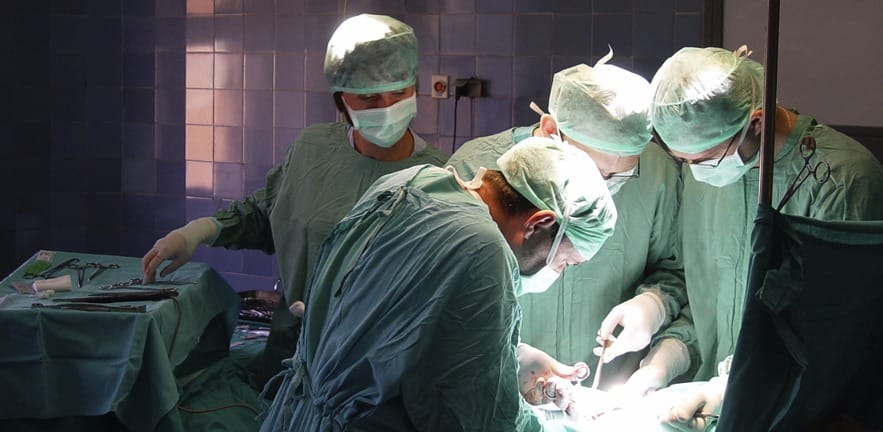One-time special forces sniper and former transplant physician Dr Keith McNeil has a no-nonsense approach to leading Addenbrooke’s Hospital.
My style of leadership is all about influencing others. But first you have to have the courage of your own convictions. I was brought up with a strong sense of social justice, which is partly why I have always worked in the public sector – the lure of money in the private sector doesn’t hold any appeal to me. My father was a Battle of Britain Spitfire pilot and my grandfather a medic at Gallipoli, so I suppose the odds of the two surviving to produce me were low. Perhaps as a result of their experiences, I had the importance of courage and integrity instilled in me from an early age.
My career was never planned. When I was 16 years old, my family moved to Cairns. I fancied becoming a marine biologist on the Great Barrier Reef. But my careers adviser said I’d be more likely to end up researching orange roughy fish off the coast of Tasmania – and suggested medicine instead. After graduating as a medic I went into the army, largely because a girlfriend’s brother was a recruiting officer.
I hate mediocrity and have always tried to be better than average. As a child I was never a great sportsman in terms of performance but I was always selected for the team in basketball and cricket. Others recognised my talent for working with people. Some individuals naturally have more ability than others to influence those around them; others simply have no insight.
I was trained as a sniper by the Australian Special Services. It was there I learnt many of the same techniques that are necessary in a medical emergency. You have to have an automatic reaction to slow things down; it’s partly physiological but mostly mental. In the army the saying is that the commander never runs away because it panics the troops. The same goes for medicine. There have to be leaders in the army, people you are ready to go to war for. But they are also people who give you a task without necessarily telling you how to do it. The ethos is very different from that in healthcare where it is very prescriptive. I think we disempower individuals by setting so many rules and regulations.
My clinical background has influenced my perspective on corporate issues. Now, if I’m told something is urgent, I think: ‘who’s bleeding to death?’ When the army offered me a desk job, I went back to medicine and worked with a chest physician, Paul Zimmerman. He brought out the fundamentals of leadership for me, which is to get the best out of people. I moved onto heart-lung transplant, where systems and team leadership are vital.
Making people accountable is key. One of the most important things a leader can do is to not make decisions for other people. They need to own their decisions and consequences. Of course, in a medical situation it can be much easier to do the procedure yourself than watch another person do it. But you have to know when to step in for the patient’s sake and when to let someone get on with it. It’s the same in health administration. I want decisions I can endorse, not to have to take them myself.
Being a successful doctor doesn’t necessarily make you a good manager. When asked, I say I don’t do any administration: I set up and run systems. I cannot possibly oversee everything but my aim is to continuously drip-feed the ethos of taking responsibility yourself through the system. People say the NHS lacks leadership but the truth is, just like the army, it has to come from every level.
The pain of regret lasts longer than the pain of failure. I am always ready to try something new and I believe opportunity favours the prepared mind. For people to do what I have done is unusual, but in my case it was down to a particular set of circumstances. I had achieved all I could on the clinical side when I was asked to become CEO of the Royal Brisbane and Women’s Hospital. Now I have the opportunity to make Cambridge the best biomedical campus in the world. And I enjoy what I am doing because I can influence the health of thousands not just individual patients.


